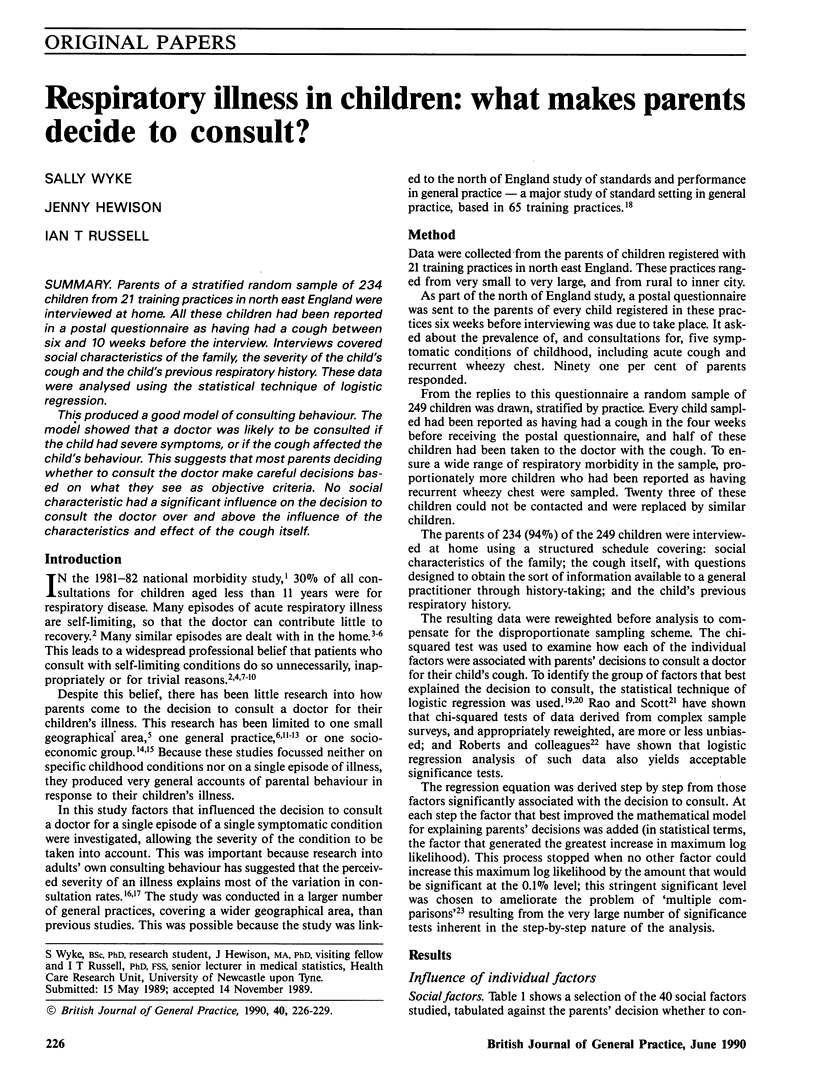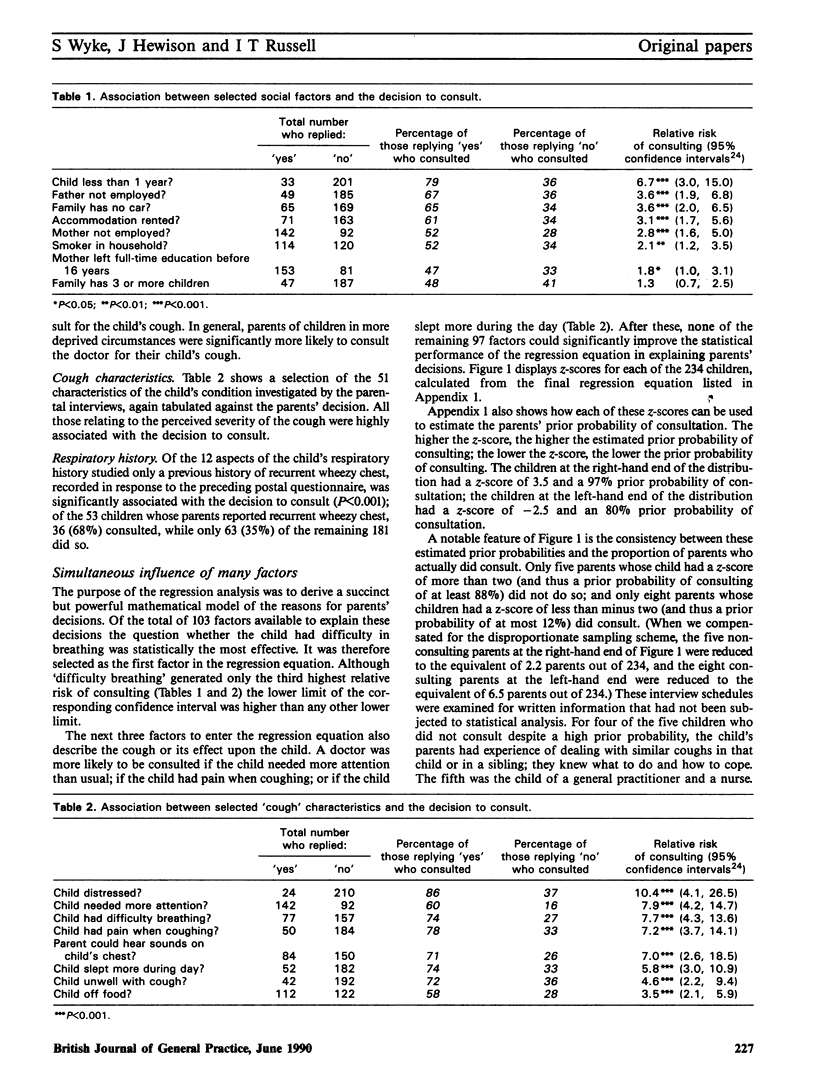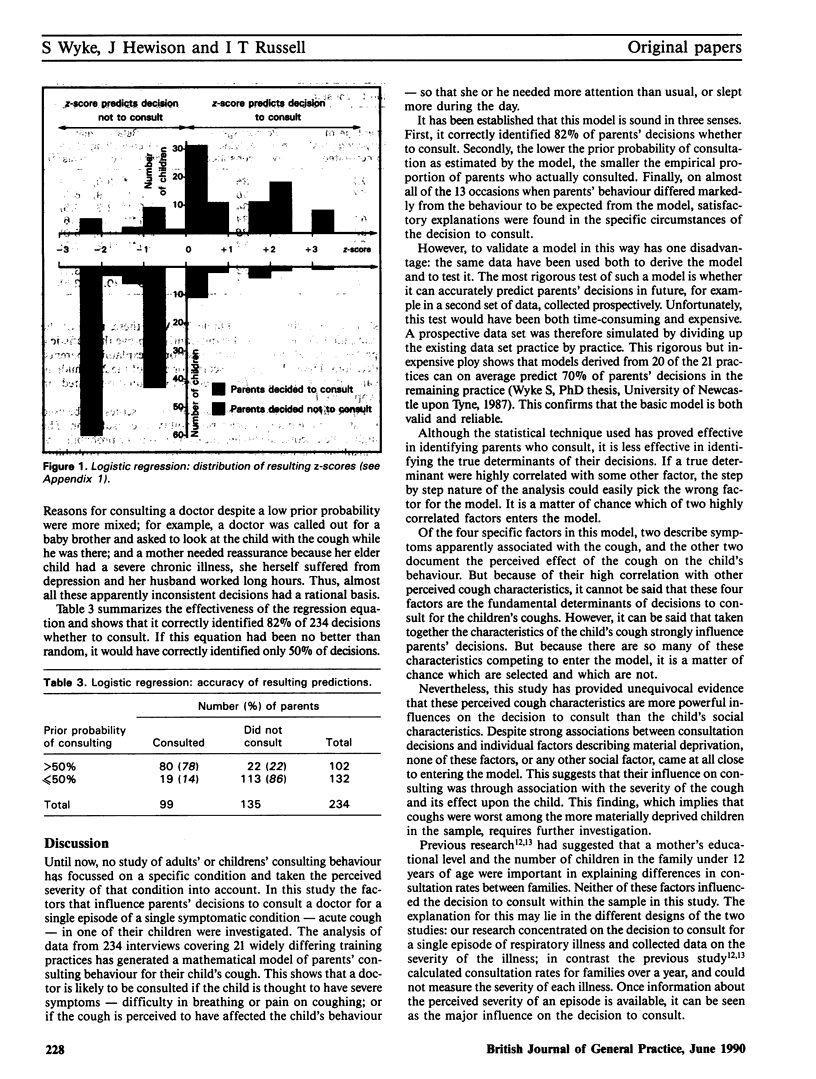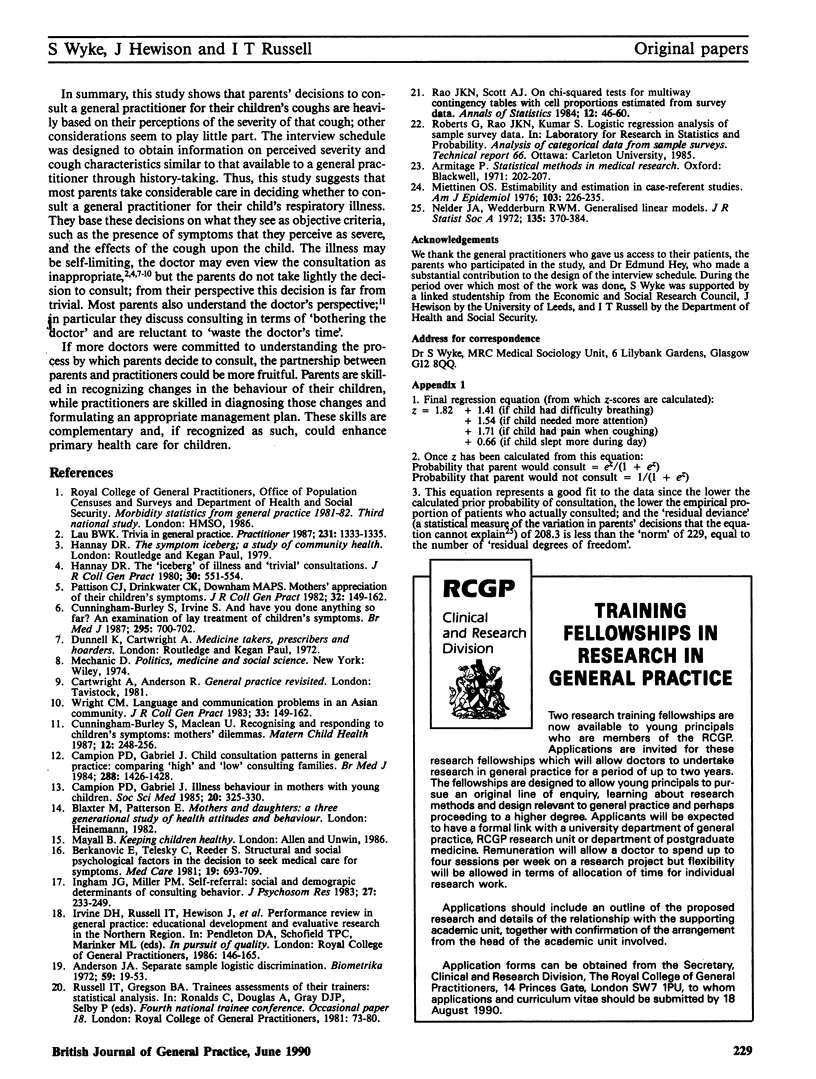Abstract
Parents of a stratified random sample of 234 children from 21 training practices in north east England were interviewed at home. All these children had been reported in a postal questionnaire as having had a cough between six and 10 weeks before the interview. Interviews covered social characteristics of the family, the severity of the child's cough and the child's previous respiratory history. These data were analysed using the statistical technique of logistic regression. This produced a good model of consulting behaviour. The model showed that a doctor was likely to be consulted if the child had severe symptoms, or if the cough affected the child's behaviour. This suggests that most parents deciding whether to consult the doctor make careful decisions based on what they see as objective criteria. No social characteristic had a significant influence on the decision to consult the doctor over and above the influence of the characteristics and effect of the cough itself.
Full text
PDF



Selected References
These references are in PubMed. This may not be the complete list of references from this article.
- Berkanovic E., Telesky C., Reeder S. Structural and social psychological factors in the decision to seek medical care for symptoms. Med Care. 1981 Jul;19(7):693–709. doi: 10.1097/00005650-198107000-00001. [DOI] [PubMed] [Google Scholar]
- Campion P. D., Gabriel J. Child consultation patterns in general practice comparing "high" and "low" consulting families. Br Med J (Clin Res Ed) 1984 May 12;288(6428):1426–1428. doi: 10.1136/bmj.288.6428.1426. [DOI] [PMC free article] [PubMed] [Google Scholar]
- Campion P. D., Gabriel J. Illness behaviour in mothers with young children. Soc Sci Med. 1985;20(4):325–330. doi: 10.1016/0277-9536(85)90005-x. [DOI] [PubMed] [Google Scholar]
- Cunningham-Burley S., Irvine S. "And have you done anything so far?" An examination of lay treatment of children's symptoms. Br Med J (Clin Res Ed) 1987 Sep 19;295(6600):700–702. doi: 10.1136/bmj.295.6600.700. [DOI] [PMC free article] [PubMed] [Google Scholar]
- Hannay D. R. The 'iceberg' of illness and 'trivial' consultations. J R Coll Gen Pract. 1980 Sep;30(218):551–554. [PMC free article] [PubMed] [Google Scholar]
- Ingham J. G., Miller P. M. Self-referral: social and demographic determinants of consulting behaviour. J Psychosom Res. 1983;27(3):233–242. doi: 10.1016/0022-3999(83)90027-2. [DOI] [PubMed] [Google Scholar]
- Lau B. W. Trivia in general practice. Practitioner. 1987 Oct 8;231(1436):1333–1335. [PubMed] [Google Scholar]
- Miettinen O. Estimability and estimation in case-referent studies. Am J Epidemiol. 1976 Feb;103(2):226–235. doi: 10.1093/oxfordjournals.aje.a112220. [DOI] [PubMed] [Google Scholar]
- Pattison C. J., Drinkwater C. K., Downham M. A. Mothers' appreciation of their children's symptoms. J R Coll Gen Pract. 1982 Mar;32(236):149–162. [PMC free article] [PubMed] [Google Scholar]


